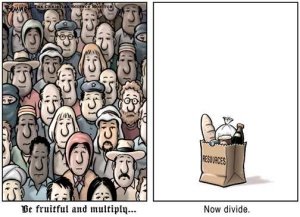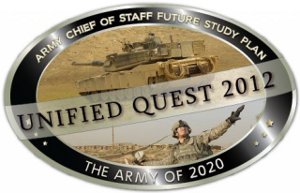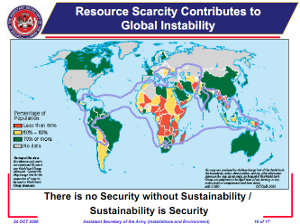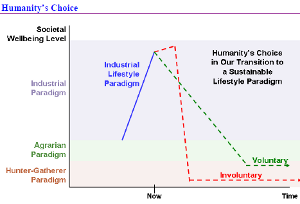THE ANC CONFERENCE:
FROM KABWE TO JOHANNESBURG
1993-04-00: Searchlight South Africa,
Vol 2, No 2: 02 January 1991; p.91-94
FROM KABWE TO JOHANNESBURG
1993-04-00: Searchlight South Africa,
Vol 2, No 2: 02 January 1991; p.91-94
Letter to the Editors
The Kabwe conference of the ANC in 1985 pleased only the security department of the ANC together with its corrupt leaders. The conference had no grain of democracy.
Throughout the proceedings, chaired by various leaders of the SACP such as Dan Tloome, John Nkadimeng and Jack Simons, the most crucial problems facing the ANC were evaded and some not even mentioned. The division in Umkhonto we Sizwe that was so apparent at the time was not even discussed. The report of the carnivorous security department was not read to the conference. The report of the Stuart Commission [which had investigated the 1984 mutiny in Umkhonto; see Bandile Ketelo et al, 'A Miscarriage of Democracy' Searchlight South Africa No 5, pp 48-9—eds] was also not tabled. Chris Hani [then the army commissar] arrogantly said the Stuart Commission was appointed by the National Executive Committee not the conference, implying that the NEC was above the conference, in violation of one of the basic principles of the ANC. In the ANC the conference is above all.
It is important to note that the behaviour of Chris Hani was condoned by the President O.R. Tambo and Joe Slovo [now general secretary of the SACP], who said nothing to reprimand this despot, their subordinate, who was so rude and uncontrollable in the ANC. When a few elected delegates tried to raise these questions they were shouted down by Hani, who categorically stated that the NEC would guide the conference, thus violating the rights of delegates. That is the behaviour of a Politburo member of the Communist Party, typical of Stalinist behaviour rooted in the ANC. It is unfortunate that the ANC has been under such men, lawyers who courageously fought against Apartheid brutality but on the contrary practised this brutality against their political opponents. Fear and intimidation reigned in the conference.
The ANC Security (Mbokodo) was and is still above the law. It has killed, tortured and maimed innocent cadres for smoking dagga [marijuana] and drinking liquor from Angolan villages, claiming that they were doing the work of the enemy. It is important to remember that the Apartheid regime never killed anyone for smoking dagga, but the ANC did, all under the cover of securing the Revolution. In doing this it had the protection of tried and tested O.R. Tambo. No security officer was ever put on trial or questioned for killing. People were killed under the umbrella of securing the ANC. To question or ask for clarification on the behaviour of security could lead one to Quatro [officially, Camp 32]. Talking about the need for holding a conference was only in whispers.
When the conference took place, there were more appointed officials than elected delegates. The funny thing was that the appointees and the delegates had the same rights in the conference: very unconstitutional. Normally officials are not supposed to have the right to vote. They can be elected but they are not supposed to vote because they have no mandate from the people, as they have no constituencies. At Kabwe these officials included not only chief representatives but members of the security department who attended the conference as journalists or catering staff. They voted without any mandate.
Former prisoners in Quatro hope that the ANC consultative conference in Johannesburg in December and the subsequent national conference in June 1991 will be held democratically, without the intimidations that characterized Kabwe. The security department must be discussed and the war criminals must account for their murders in Quatro. Conference must at least discuss the democratization of the ANC. Secondly, there must be an overhauling of the security department. The butchers cannot serve our people. All war criminals must be removed from office.
Elections of delegates must no longer be determined by the security department or the President like in Kabwe, where he wrote a list for people to elect from. People must elect the leaders of their choice, not according to the taste of the leader. Also, chief representatives and all other appointees must not have the same rights as elected delegates. They can be elected but should not vote, because they have no mandate from the people. Like catering staff and security personnel they should not vote, for they will not be at the conference as delegates but as civil servants. To use them in voting is undemocratic.
Today's ANC is far from being a democratic organization as it was during the time of Chief Luthuli. In exile the ANC entrenched Xhosas at the expense of other nationalities. This led to a clash between Zulus and Xhosas in the sixties at the ANC camp at Kongwa, in Tanzania. Even today no-one can doubt tribalism in the ANC. The first top six men in the ANC are Xhosas. The NEC contains more Xhosas than any other nationality in South Africa. When the late John Pule Motsabi wanted to rectify this at Kabwe, he was ostracized and removed from the NEC despite the fact that he had been on the Transvaal executive committee of the ANC in the fifties, together with Nelson Mandela. Conference must allow open discussion of this problem and publish the statements made by Motsabi.
Next, there should be an honest account of corruption in the ANC. Corruption flared at the Lusaka headquarters for many years, including misuse of young women by old men with high titles. Young women made their bodies available to secure good scholarships and tickets to fly abroad in a much easier way. This misuse of power by many NEC members, with few exceptions, has been one of the thorns in the ranks. Many young couples had to divorce due to clashes with so-called leaders, who suddenly became sugar daddies and playboys misusing their offices. This lowmorality by the leadership of both the ANC and the SACP leaves much to be desired.
Finally, the participants in the mutiny still suffer all kinds of disabilities for their stand against autocracy in the ANC. None were tried and convicted before being sent to Quatro. The conference must mandate a full and independent investigation of the mutiny, of the events that led to it and what happened afterwards. All barriers must be lifted which prevent the victims of the ANC security from playing a full and active part in the life of the ANC.Mkatashingo
Editors' note: The Third National Consultative Conference of the ANC was due to be held in exile in June 1990. Following the unbanning of the ANC it was postponed to 16 December in Johannesburg. It was postponed again in October by the National Executive Committee to June 1991 because it would exclude tens of thousands of exiles, 'including virtually the entire Umkhonto we Sizwe membership' and hundreds of political prisoners. (Weekly Mail, 1 Nov, 1990) The NEC stated that if conference was held in December, exiles would not have 'real opportunity to take part in the vital process of debate and policy formulation which is the lifeblood of the branches of the ANC.
A conference with reduced powers would take place in December, participants to be invited by the organizing committee. Election of a new NEC will take place at the conference in June 1991. The Weekly Mail reported that:over the past year ANC members in exile hadbeen 'increasingly open with the press about their criticism of members of their national executive.. Key NEC leaders were accused of a host of sins including incompetence, bureaucratic and undemocratic behaviour and even womanising...'.
Several senior ANC members told the Weekly Mail that had the conference gone ahead in Junel990, up to half of the present NEC would have been voted out of office or would have declined to stand.
The letter published above points to fundamental unfinished business from the National Consultative Conference of the ANC, at Kabwe in June 1985.
There was no indication in the ANC's 64-page Documents of the Second National Consultative Conference, that a majority of its trained troops in Angola hadmutinied in 1984, or that their leading demand was for a democratic conference, or that this had been widely called for in MK since 1980. Those who had most ardently called for a conference of the ANC were either dead or in Quatro; their jailers and executioners packed the conference.
The ANC in exile was not renowned for democracy. In April-May 1969, after serious dissatisfaction expressed among the members of Umkhonto, there was a national conference at Morogoro, Tanzania. Conferences were held in 1971 and 1975 but had no power of altering the executive. By Junel985 the ANC had held no effective national conference for 16 years.
The SACP admitted shortly after the Morogoro conference that it had been 'urgently timely and necessary because a 'dangerous chasm was opening up between the leadership and the rank-and-file...' (African Communist, No 38, third quarter 1969, p 18). No such public admission appeared before, during or after the Kabwe conference about the far more serious revolt against the ANC leadership in 1984. Instead of bringing the ANC security apparatus Mbokodo to account, as the mutineers had demanded, it emerged stronger than ever. The democratic facade presented by the ANC leadership to its members and the world at the conference was grossly misleading.
Of the thirty NEC members elected at Kabwe, at least eight were directly responsible for repression or personal interrogation of the mutineers.These included Chris Hani (now MK chief of staff), Joe Modise (commander of MK), Mzwai Piliso (ANC chief of security in 1984), Joe Nhlanhla (appointed head of the security department in 1987), Moses Mabhida (then general secretary of the SACP, one of the very few on the NEC with unrestricted access to Quatro) and Sizakhele Sigxashe (now chief intelligence analyst of MK, politburo member of the SACP and head of the tribunal which condemned seven mutineers to death). Also elected to the NEC were four of the five-man commission appointed by the leadership to investigate the mutiny. Apart from Sigxashe, these were James Stuart (convenor of the commission) and two members of the SACP: Anthony Mongalo (later administrative secretary of Tambo's presidential staff) and Aziz Pahad.
The SACP emerged from the conference, which it had largely controlled through the chair and through the packing of non-elected delegates, further strengthened within the NEC, in Umkhonto and in the security apparatus. It was a 'congress of victors' over the democracy movement in the ANC. Under the circumstances, democratic debate over any substantive issue was impossible. There is no reference in the published documents to the argument by John Pule Motsabi (mentioned in the letter) that tribalism was a serious problem in the organisation.
Only a single oblique reference was permitted to appear in ANC and SACP publications. In the month of the Kabwe conference, an article in Sechaba stated that 'A leading Congressman has circulated a memorandum on tribalism in the ANC../. (June 1985, p 9) No more. Not a word to indicate the nature of the argument, nor what information was presented in the memorandum to support the claim. The leading Congressman' was kept anonymous.
His memorandum was not published. The author of the article in Sechaba, titled 'Our Freedom Charter', was the leading SACP member, Professor Jack Simons, who helped chair the Kabwe conference. He did not attempt to refute the (unexplained) argument by his (unmentioned) opponent.
Motsabi lost his position on both the NEC and the central committee of the SACP, and died shortly afterwards. He became a non-person in the ANC and SACP press, just as his argument became a non-argument. It was reported after the conference that another leading member of the SACP had also spoken up on the question of tribalism in the ANC, and that this had also been hushed up. Rank and file ANC members were left to read between the lines of Sechaba in the same way as the population of the USSR learnt to decipher runic comments in the official press. Rumour and whispers took the place of free, open dissemination of ideas.
Motsabi's career is open to criticism, but he was a trade union leader on the Rand in the 1940s, was an executive member of the Council of Non-European Trade Unions and secretary of the Transvaal ANC in the 1950s. He was banned in 1953 but assisted in launching Sactu. He opposed the Trades and Labour Council plan to organize black workers in 'parallel' unions and called in 1954 for black trade unionists to join 'with the democratic progressive white trade unions to form a militant workers' federation, free from the opportunism which has hitherto crippled the struggle'. (Luckhardt and Wall, Organize or Starve! p 88) Forty years after becoming active in the workers' movement, he was silenced—by the ANC.
» » » » [Submitted as List of Authorities to Concourt in The Citizen v. McBride (CCT 23-10), on behalf of Argument that TRC's 'Crime of Apartheid' was a Falsification of History; in Radical Honesty SA Amicus Curiae in Support of Population Policy Common Sense Interpretation of the TRC Act (PDF)]








No comments:
Post a Comment